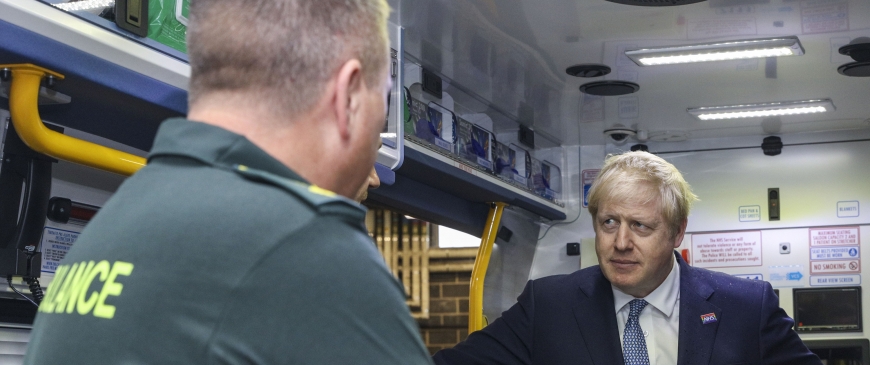
No-deal Brexit spells trouble for British expats in Europe
If you’re heading over to the continent for your holidays (or there already) and find yourself wincing at the Brexit-weakened exchange rate as you cough up for your cerveza, please spare a thought for the 1.3 million Britons who live in the EU. While you’re kicking back enjoying a well-earned sunny break, they are sweating bullets about what will happen to their rights if the UK leaves the EU without a deal.
Theresa May’s thrice rejected exit plan was not without its faults, but it promised relief for Britons living in the EU27. It included a transition period of 21 months (until December 2020) during which EU free movement rights would remain virtually unchanged, even for new arrivals – enough time for Britain and the EU to agree a new arrangement for dealing with each other’s citizens. But Boris Johnson’s pledge to leave the EU “do or die” on October 31st has thrown a spanner in the works.
No deal means no transition period –so Britons living in the EU would become third-country nationals on November 1st. From then on they will be at the mercy of the migration laws of the EU country they live in – and some are tougher than others.
Ireland and Malta plan to let British citizens live and work roughly under the same conditions they have now after a no-deal Brexit. But other countries will only let UK nationals enjoy those rights for a limited period before they are treated like third-country nationals. In Belgium, Cyprus and Spain this grace period will extend until December 2020, but in France, Sweden and the Netherlands it will end after a year, and in Austria and Germany it will last just six months.
All EU countries have said that they will only grant British citizens rights if the UK reciprocates. That seems reasonable, until you factor in the hard time EU citizens have had proving their settled status in Britain – because historically they did not need to register as residents, and the new system for residency applications has been plagued with problems.
If these reciprocity issues can be overcome, UK citizens who have lived in EU countries for several years should be less affected by a no-deal exit, but more recent arrivals will face new and differing degrees of bureaucracy.
Most EU member-states plan to allow Britons to continue living and working in their countries if they have been resident for at least five years by Brexit day. Many have also said they will make securing settled status easier for Britons who can prove they have been living in the country lawfully for less than five years. To gain permanent residence, they will need to produce evidence of their lawful status. But while this should be a straightforward exercise for Britons living in countries where registration of EU citizens is mandatory, like Germany or Belgium, it will be more complicated for Britons living in France, for example, where there is no obligation to register.
Even in member-states where registration exists, British citizens could face additional demands to get a residence permit, like proof of a clean criminal record (Austria) or language tests (Lithuania). Those who have lived in the country for less than five years may be asked to pass integration tests similar to those applied to non-EU citizens.
Some countries’ rules will be trickier than others: Sweden, for example, only issues ‘personnummers’ (a personal ID number needed for everything from paying taxes to borrowing books at public libraries) to foreigners who have been in work for at least a year.
Three categories of British citizens will be particularly hard-hit by a no-deal Brexit. First, those with low or unstable incomes will find it much harder to prove they have the means to support themselves and thus be allowed to stay in an EU member-state – non-EU nationals face tougher requirements than EU citizens. Second, Britons who work in two or more EU countries, particularly in services like consultants and lawyers, will find it harder to continue their activities. Free movement of services is already patchy within the EU, and could become even more complex between the UK and the EU27 after Brexit. Third, non-EU family members of Britons living in the EU will face more stringent requirements to live or stay with them. Less conventional families will be especially affected in a no-deal scenario: British same-sex couples will no longer be recognised in countries like Romania or Latvia, while unmarried partnerships will not be recognised in Poland or Bulgaria, for example.
Many Britons have tried to dodge these problems by applying for citizenship in the EU – the spike in applications for Irish passports is well known. But switching citizenship often comes with conditions: Spain, home to over 300,000 Britons, requires Britons to give up their UK passport to become Spanish citizens.
Johnson has promised to safeguard the rights of EU citizens in the UK, but exactly how remains to be seen. The new prime minister’s uncompromising approach to Brexit and the UK government’s increased preparations for leaving without a deal have heightened concerns, not least on the currency markets. EU countries regard it as the most likely outcome. As a result what happens to the rights of many Brits living in the EU, especially those with less conventional jobs and lifestyles, remains worryingly up in the air.
Camino Mortera-Martinez is a senior research fellow at the Centre for European Reform.
